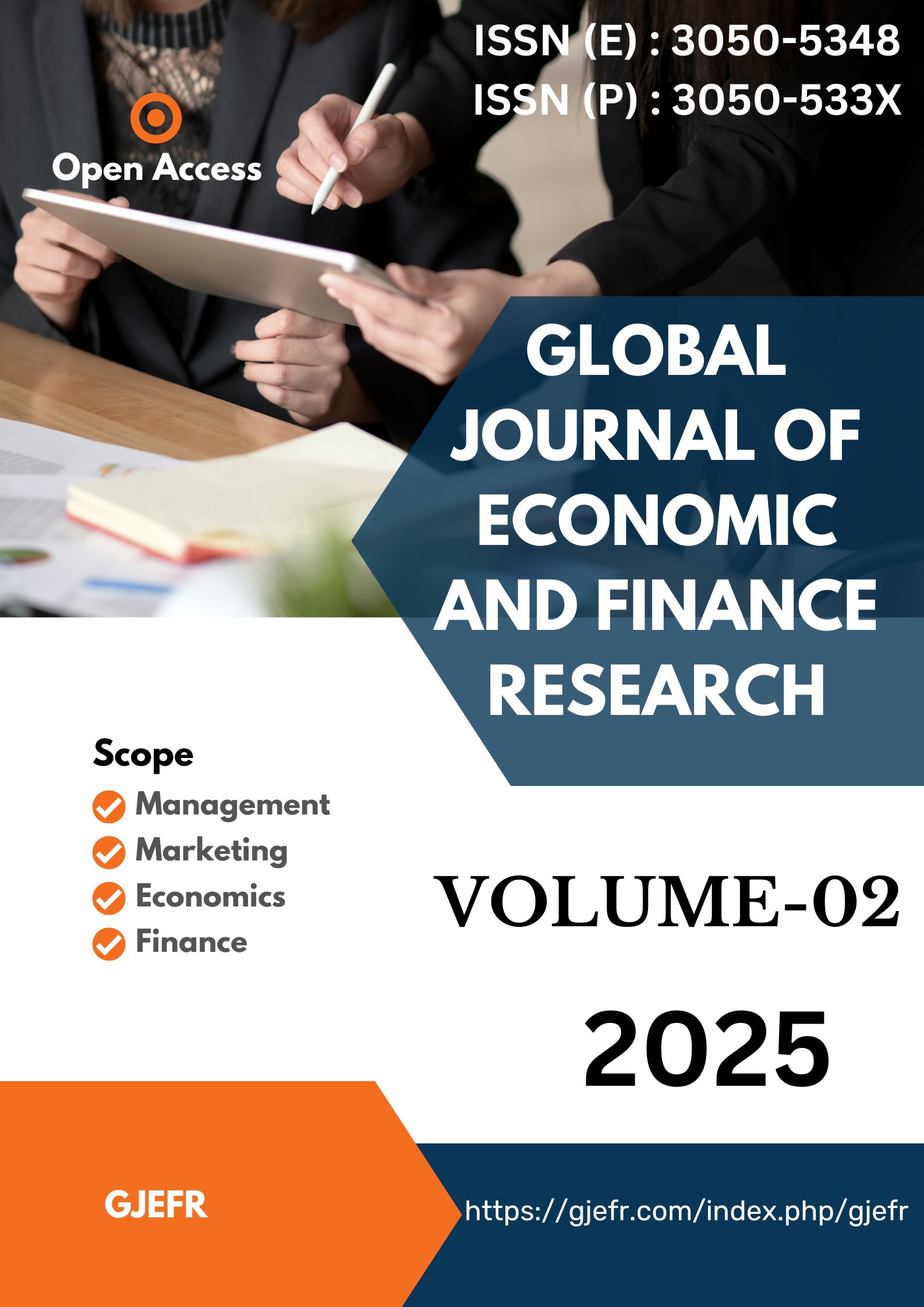Analysis of the Theory of Al-Maqāṣid asy-Syarī'ah in Sustainable Economic Development
DOI:
https://doi.org/10.55677/GJEFR/01-2024-Vol01E5Keywords:
Sustainable Economic, Development, Al-Maqāṣid asy-Syarī'ah, Maslahah, Social Justice, Environmental DegradationAbstract
Sustainable economic development has emerged as a critical challenge in our increasingly globalised world, where environmental degradation and social inequities pose significant threats to future prosperity. The urgency of this issue is underscored by recent reports indicating that over 1 billion people still live in extreme poverty, while climate change continues to exacerbate existing vulnerabilities. In this context, the theory of Al-Maqāṣid asy-Syarī'ah provides a relevant framework for addressing these multifaceted challenges, as it focuses on the preservation of human welfare and the promotion of social justice. Central to this theory are the principles of maslahah, which advocate for actions that yield the greatest benefit for society, thereby aligning economic activities with ethical and moral values. This article seeks to analyse the application of Al-Maqāṣid asy-Syarī'ah in the realm of sustainable economic development, underscoring its potential to foster holistic community welfare. Employing a qualitative methodology, this study will delve into pertinent literature, elucidate the research methods employed, and present the findings that emerge from the analysis. It is anticipated that the insights gleaned from this research will illuminate the significance of integrating Islamic principles into sustainable economic practices, ultimately contributing to a more equitable and environmentally sound future. By recognising the interconnectedness of economic, social, and environmental factors, we can pave the way for a development model that is not only sustainable but also just and inclusive.
References
Ali, Muhammad ‘Abd al-‘Aṭi Muhammad. (2007) Al-Maqāṣid asy-syarī‘ah wa Aṡaruhā Fī al-Fiqh al-Islāmi. Kairo: Dār al-Ḥadīṡ,
Abubakar, Al Yasa’. (2016) Metode Istislahiah, Pemanfaatan Ilmu Pengetahuan Dalam Ushul Fiqh. Jakarta: Kencana,
Al-Būṭi, Muhammad Sa‘īd Ramaḍān. (2001). Ḍawābiṭ al-Maṣlaḥah fī asy-Syarī‘ah al Islāmiyyah. Beirut: Muassasah ar-Risālah, ed 6,
Al-Fanjari, Muhammad Syauqi. (2010) Al-Mażhab al-Iqtiṣādiy fī al-Islām. Kairo: al-Hai’ah al-Miṣriyyah al-‘Ammah li al-Kitāb,
Al-Miṣri, Muhammad Ibn Mukrim Ibn Manẓūr.(n.d) Lisān al-‘Arab. Beirut: Dār aṣ Ṣādir,
Asy-Syāṭibi, Abu Isḥāq. (1997) Al-Muwāfaqāt fī Uṣūl asy-Syarī‘ah. Beirut: Dār al-Ma‘rifah, ed.3,
Al-Qaraḍāwi, Yūsuf. (2010) Maqāṣid asy-syarī‘ah al-Muta‘alliqah bi al-Māl. Kairo: Dār asy Syurūq,
Bakri, Asafri Jaya. (1996) Maqashid Syari’ah Menurut Al-Syatibi. Jakarta: PT Raja Grafindo Persada,
Muzammil, Iffah. (2010) Maṣlaḥah Sebagai Sumber Hukum Islam Menurut Najm al Dīn al-Ṭūfy, Al-Qānūn, Vol. 13, No. 1, June
Qorib, Ahmad. (1997) Ushul Fiqh 2. Jakarta: Nimas Multima, ed. 2,
Rizdwan Ahmad, (2008). Metode Pentarjihan Maṣlaḥah dan Mafsadah Dalam Hukum Islam Semasa‛. Shariah Journal, Vol. 16, No. 1
Riyanto, Waryani fajar, (2010) Pertingkatan Kebutuhan Dalam Maqasid Asy-Syari’ah, Jurnal Hukum Islam (JHI), Volume 8, Nomor 1, June.
Raisūni, Ahmad. (1995) Naẓariyyah al-Maqāṣid ‘Inda al-Imām asy-Syāṭibi. Riyadh: Ad-Dār al-‘Alamiyyah li al-Kuttāb al-Islāmiyyah, ed. 4,
Sahroni, Oni and Adiwarman A. Karim. (2016). Maqashid Bisnis & Keuangan Islam. Jakarta: Rajawali Pers,
Yunus, Mahmud. (1990). Qāmūs ‘Arabiy-Indūnīsiy. Jakarta: Hida Karya Agung, ed.8
Zaid, Muṣṭafā. (1964). Al-Maṣlaḥah Fī Tasyrī‘ al-Islāmi wa Najm ad-Dīn aṭ-ṭūfi. ed. 2, Kairo: Dār al-Fikr al-‘Arabi,
Downloads
Published
Issue
Section
License
Copyright (c) 2024 Global Journal of Economic and Finance Research

This work is licensed under a Creative Commons Attribution 4.0 International License.

